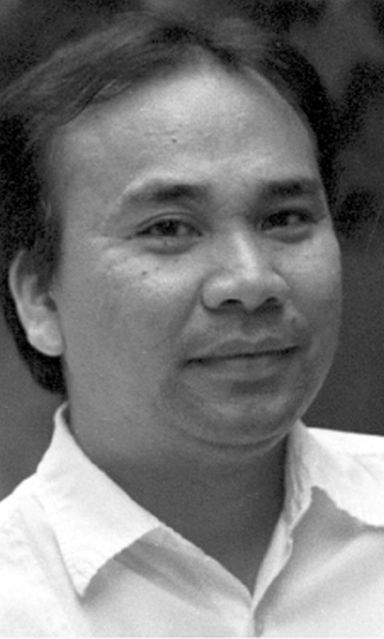
BERSALES
Tomorrow is the 121st anniversary of the execution of our national hero Jose Rizal at Bagumbayan. More than a day of remembrance, it is one of those few days of the year everyone anticipates, because being a holiday and coming so near to the New Year, traffic virtually disappears from our streets.
Only a few government officials will commemorate this event by waking up early and gather at provincial, city or town plazas to lay a wreath at the ubiquitous statue of Rizal. The rest will continue to doze soundly while those that wake up early will think of a day spent cooling off at the mall, for which I will gaily recommend that they spend time to watch my dear friend Loy Arcenas’ beautiful movie, “Ang Larawan.”
Gone are the days when Rizal’s heroic demise was still fresh in the minds of everyone, and so let me find this space to recall what a day it was a few years later, based on an anonymous article that appeared in the December 30, 1932 issue of Senator Vicente Rama’s newsweekly magazine, “Ang Bag-ong Kusog.”
Dec. 30, 1901 was a Monday, but it was then as now a national holiday. The whole of Cebu looked like it was in mourning; streets all empty and everyone sad and downcast as if it was Good Friday. At the clearing fronting the Cebu City Hall (later called Plaza Rizal and now Plaza Sugbu where one finds a huge parking lot more than a decent park), a templete was built bearing coffin on bier, a catafalque, decorated by the painter Simeon Padriga. At eight in the morning, a large crowd representing the elite as well as the masses of Cebu gathered round it. Don Julio Llorente, the first governor appointed by the American authorities of Cebu, began the ceremonies with a speech.
A student in Madrid during the time of the Propaganda Movement there, Llorente was an eyewitness to history, now relating his experiences meeting Rizal as well as other members of the movement like Marcelo H. del Pilar. His speech delved on Rizal’s personal struggles and pains as well as his endeavors to fight for the rights of his fellow natives in his homeland.
After this stirring delivery, Judge Lyman Carlock followed by talking about Rizal’s enduring values and traits and his civic-mindednes — a particularly important theme that historians point to why Rizal was favorably propagated by the new colonizers as man to emulate, a hero for the times. Don Florentino Rallos, the municipal president or mayor of Cebu, followed, probably talking also on the same theme as Judge Lyman’s. Then a local band played a melancholic piece to end the ceremony.
Later, a “velada” or soiree (evening party) was held at the then-huge “Teatro Junquera” (which by the time the author wrote had already become “Teatro Oriente,” owned by Jose Avila, grandfather of my good friend, Bobit Avila). The theater was filled to the brim, as it were with guests, among them the Climaco women (Felicidad, Concepcion, and Vicenta), the Rallos women (Anunciacion, Carmen, and Concepcion), as well as Matilde Veloso, Adela Suico and the wives of Andres Borromeo, Filemon Sotto, Mateo Masecampo, F. del Mar, and Jaime De Veyra.
Most unforgettable of that day, lamented the author, was the solemnity that marked the streets of the city; all private and public establishments were closed, all windows of houses shut. Some houses displayed images of Rizal garlanded by flowers against a field of black mourning cloth. No shouts and laughter could be heard anywhere. Cockpits were called off. Even picnics on the beaches or plazas were banned. Even carriages and coaches did not ply the streets. It was as if Cebu had come to a standstill.
Thirty-one years later, this anonymous author could do nothing more than lament how times had changed. In lieu of a day of active mourning, the Rizal Day of the early 30s had become an occasion for revelry and noise.
I am sure that this anonymous writer turns on his grave whenever December 30 passes each year today, where we spend nary a moment to ponder on Rizal’s words: “I die without seeing the dawn … Forgot not those who have fallen during the night.”
* * *
My condolences to the family of my dear friend, fellow columnist and university colleague Ricky Rama Poca on his sudden and untimely passing just hours after Christmas. As I mentioned before, Ricky was an important figure in the fulfillment of Gov. Gwendolyn F. Garcia’s vision of a provincial museum for Cebu. In that, he showed me everything that his grandfather Senator Vicente Rama and his children kept faithfully at the ancestral house that now bears the remains of Ricky while in state. Without Ricky’s generosity and the generosity of the Ramas, most especially the last surviving child of the senator, Corazon Rama-Del Prado, it would have been more difficult to find documents to fill up the American and World War II galleries of Museo Sugbo.
Farewell, Rick. Please pray for us even as we pray for the repose of your soul.
Disclaimer: The comments uploaded on this site do not necessarily represent or reflect the views of management and owner of Cebudailynews. We reserve the right to exclude comments that we deem to be inconsistent with our editorial standards.




